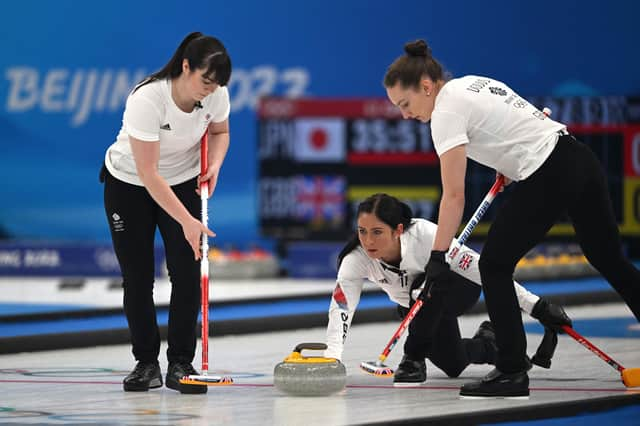Winter Olympics: My hero of the games was small, round and very hard – Susan Morrison


They just don’t really seem terribly useful. Look at the Summer Olympics. Running very fast was a great skill back in cave-dwelling days, when chasing down a mastodon meant a good dinner for everyone.
Javelin chucking, I get the point. Pretty vital for avoiding a fast. Even throwing about huge round bits of metal could be handy in a battle situation. It always looks like the preferred weapon of war for the Scots to me, but that may be something to do with early exposure to the front of Scott's Porage Oats boxes.
Advertisement
Hide AdAdvertisement
Hide AdIn the Winter Olympics, though, there are a lot of sports just dedicated to getting down mountains at great speed, completely ignoring the fact that there is no good reason to go up snowy peaks in the first place. Is there a John Lewis at the summit? No? Count me out then.
In one case, they ski downhill incredibly fast, only to launch off into space then twirl about before landing. Why? Is this an ancient hunting technique? Admittedly, it's a brilliantly sneaky way to bring down a bird. I’d pay good money to watch a startled seagull get head-butted mid-air.
Then there’s lying backwards on what looks like a tea tray to hurtle down an icy slope. When I was kid, we called it sledgin’. There was no ‘g’ at the end. We were never actually on the sledge, sorry, mum's tea tray, long enough to warrant the full word. It’s a dangerous sport, apparently. To underline this, the event’s called the ‘skeleton’, which is like calling rugby ‘stomp-face’ or golf ‘bore-to-death’.
Curling, though, I can get behind. Mainly because we won, but also because it features a true quiet Scottish hero, centre stage from day one.
Advertisement
Hide AdAdvertisement
Hide AdThe curling stones. I caught a brief moment where an American correspondent breathlessly told the audience that the Chinese brought the Olympic curling stones from Scotland. They are the gold standard of stones, and they can only come from as he put it “the remote island of Anna Craig off the coast of Ayrshire”.
One, mate, it’s Ailsa Craig, and, two, far from being remote, it’s big baw heid sticks out of the Firth of Clyde about an hour from Glasgow. We’re not talking St Kilda here.
All the very best curling stones come from Ailsa Craig. If anyone is looking to buy one, it’ll set you back a couple of hundred quid. The price of a whole set will make you blink. Especially if you drop one on your toe.
Should curling become your thing, you can get your stone serviced by the company in Mauchline that makes them, although I can’t figure what sort of TLC a great lump of stone needs.
Advertisement
Hide AdAdvertisement
Hide AdI can’t imagine you buy your own stones, though. I’m guessing each rink has its set. This isn’t badminton. It's not like you can chuck two muckle great chunks of granite in a sports bag and leap aboard the bus to the sports centre.
So yes, congratulations to the team who lifted the gold, but a quiet hurrah for the Games’ gliding, sliding, granite hero.
A message from the Editor:
Thank you for reading this article. We're more reliant on your support than ever as the shift in consumer habits brought about by coronavirus impacts our advertisers.
If you haven't already, please consider supporting our trusted, fact-checked journalism by taking out a digital subscription.
Comment Guidelines
National World encourages reader discussion on our stories. User feedback, insights and back-and-forth exchanges add a rich layer of context to reporting. Please review our Community Guidelines before commenting.

